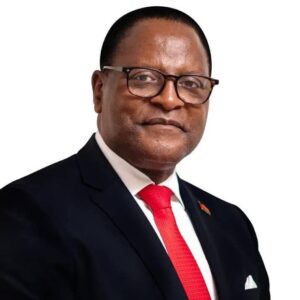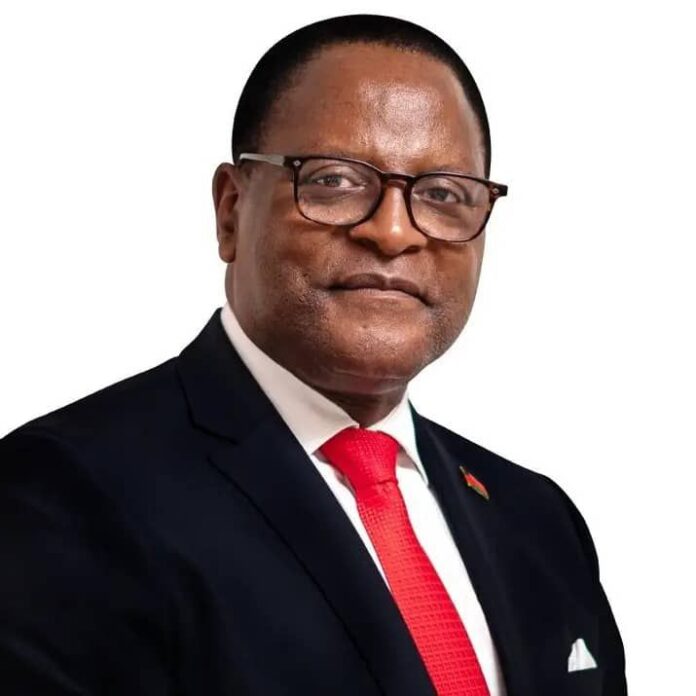By Burnett Munthali
As Malawi inches closer to the next general elections, the big question on many minds is whether the Malawi Congress Party (MCP) can still rally the support of Malawians.
President Lazarus Chakwera came into power in 2020 with the Tonse Alliance, a coalition formed to challenge the status quo and promise a new era of transformation.
Central to his campaign was the “High Five” agenda — a blueprint comprising servant leadership, uniting Malawians, prospering together, delivering infrastructure development, and ending corruption.

Four years later, the nation stands at a crossroads, weighing whether the promises of the High Five have translated into lived realities.
Supporters argue that the MCP-led government has made important strides in areas such as road construction, education infrastructure, and digital transformation.
For instance, the construction and rehabilitation of key roads, including the M1, are often cited as tangible signs of progress under the Chakwera administration.
In education, the government has constructed and rehabilitated several classroom blocks, increasing access to learning for children in rural and urban areas.
In addition, proponents highlight improvements in public sector reforms, especially efforts to digitize government services through the Malawi Digital Economy Strategy.
Yet despite these developments, critics believe the Chakwera administration has fallen short on several fronts, undermining public trust.
One of the most cited grievances is the failure to decisively tackle corruption, despite promising zero tolerance when he assumed office.
High-profile corruption scandals have continued to emerge, with some involving individuals linked to the ruling party or government appointments.
The Anti-Corruption Bureau (ACB), though independent in principle, has been accused of facing political interference and lacking prosecutorial teeth.
Economic hardship has further fueled discontent, as the cost of living continues to rise while job opportunities remain scarce for many Malawians.
The devaluation of the kwacha, rising fuel prices, and persistent power outages have added to the frustration of citizens struggling to survive.
Furthermore, the Chakwera administration has come under fire for excessive foreign travel and the perception of bloated government spending.
Public sector wage delays and a freeze on civil service recruitment have also demoralized many, especially the youth who had high hopes for meaningful employment.
In rural communities, where promises of subsidized fertilizer under the Affordable Inputs Programme (AIP) once won massive support, inconsistent delivery has eroded confidence.
As a result, even within the MCP’s traditional strongholds, there are murmurs of discontent and debates over whether the party has truly delivered.
The death of Vice President Saulos Chilima in June 2024 also significantly altered the political landscape, leaving a vacuum in the Tonse Alliance and deepening uncertainty.
Chilima’s UTM supporters, once key allies of MCP, may not automatically vote for the ruling party again, especially without a renewed alliance deal.
To remain electorally viable, the MCP will need to regain lost trust, strengthen its internal unity, and realign its development agenda with citizens’ real needs.
President Chakwera, if seeking re-election, must present a compelling case that the next five years will be different — and better — than the last.
He will need to be honest about past missteps while clearly outlining new strategies to combat corruption, create jobs, and uplift the economy.
Malawians are no longer easily swayed by party colors or rhetoric; they are more politically conscious and demand visible, consistent results.
With voter expectations rising and the political opposition regrouping, 2025 will not be a walkover for the MCP.
Whether Malawians will vote for the MCP again depends not only on campaign promises but also on the credibility of past delivery.
The High Five agenda, once a symbol of hope, must now be backed by genuine, measurable outcomes that touch the lives of ordinary people.
In the end, the ballot will reflect whether Malawians still believe that the Malawi Congress Party — under President Chakwera — deserves a second chance.



